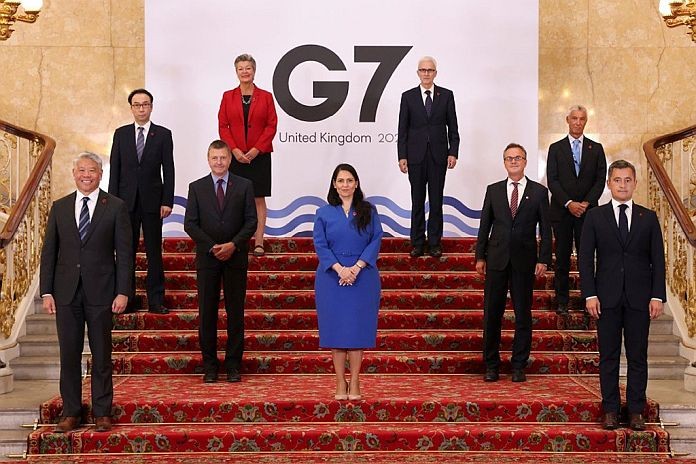LONDON, England – G7 interior and security ministers have called for expanding the use of INTERPOL to respond to global crime threats and terrorism through increased sharing of information, expertise and operational support.
During discussions on the current situation in Afghanistan, the importance of data sharing and having the right capabilities and processes to identify terrorists travelling into, or out of, the country were identified as priority areas.
With more than 4,200 INTERPOL alerts related to subjects with either direct or indirect links to Afghanistan, as well as details of some 60,000 profiles of foreign terrorist fighters, Secretary General Jürgen Stock underlined the need to make this information as widely available as possible.
Fingerprint match
An example of this was the identification and arrest of an irregular migrant at the Schengen border in September 2020 after checks against INTERPOL’s databases revealed a fingerprint match to an improvised explosive device recovered years before in Afghanistan.
Given this success, secretary-general Stock welcomed the G7 ministers’ recognition of the need to increase the provision of biometric data particularly DNA and fingerprint information, where appropriate, as well as contributions to INTERPOL’s Crime Analysis Files.
INTERPOL Secretary-General Jürgen Stock, said:
“We can do more, and with the right support we will do more because the global threat requires it.
“Intelligence flows should mirror an increasingly interconnected world, which is why we must avoid creating regional silos or duplication of processes which prevent global information fusion.
“A fully integrated global security architecture supported by INTERPOL can help more effectively address crime threats such as terrorists attempting to cross borders, child abusers exploiting their victims, or ransomware attacks against critical infrastructure,” added the INTERPOL chief.
“The leadership shown by the UK and especially the Home Secretary during this G7 ministers meeting has provided a strong platform for real action, and I look forward to further strengthening our relationship to achieve positive results,” concluded secretary-general Stock.
Identifying child abuse victims
Reflecting the ministerial support for INTERPOL, the ‘London Interior Commitments’ issued at the end of the meeting also identified the need to coordinate funding for INTERPOL’s core capabilities.
Additionally, ministers committed to the active promotion and use of the International Child Sexual Exploitation (ICSE) database. On average, the ICSE database helps identify seven child abuse victims every day, and in total has assisted in the identification of more than 26,000 victims worldwide, and more than 12,000 offenders.
Tackling money laundering and illicit finance, which along with corruption, was also highlighted in the London Interior Commitments as a crucial element in disrupting serious and organized crime networks, an increasing priority through the COVID-19 pandemic.
INTERPOL’s work with the International Anti-Corruption Coordination Centre in London facilitates secure operational communications. To date, nearly 1,600 INTERPOL alerts have been issued by 99 countries against suspects involved in alleged corruption and bribery offences.
In this respect, the G7 ministerial support for strengthening INTERPOL’s mechanisms to maintain the integrity of its system of notices and diffusions was also welcomed by secretary-general Stock.





